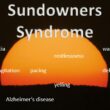Alzheimer’s Wandering Prevention
The Journey of a Lost Soul: Comprehending and Handling Alzheimer’s disease wandering
Alzheimer’s disease is a neurological disease that worsens with time and impairs cognitive abilities. For carers, wandering is one sign that is most concerning. This disorientation and departure from familiar surroundings can be risky and emotionally taxing behaviour. It is essential to protect individuals with Alzheimer’s by comprehending the causes of wandering and putting safety precautions in place.
Table of Contents

The Fundamental Causes of Wandering
Alzheimer’s Wandering Prevention
Although there isn’t a single reason why Alzheimer’s patients wander, a number of things can lead to this behaviour:
- Abrupted Spatial Awareness: Alzheimer’s disease affects the parts of the brain in charge of navigating spaces. This may cause one to become disoriented and feel the need to “go home,” even though they are already at home.
- Unmet Needs: The patient may be attempting to express an unmet need, such as a need to urinate, feel hungry, or be in discomfort.
- Seeking Stimulation: For those who have lived active lives in the past, boredom and restlessness can be major driving forces behind travelling.
- Adhering to Known Routines: They may make an effort to resume a habitual pattern from their past, such going to work, seeing relatives, or going back to a favourite spot from their early years.
- Enhanced Agitation or Anxiety: Agitation, anxiety, or a sense of overwhelm can cause a strong need to flee or move.
Alzheimer’s Wandering Prevention
Alzheimer’s patients run the risk of wandering off and endangering themselves because of these variables as well as the disease’s effects on judgement and communication.
The Perils of Getting Lost
Alzheimer’s Wandering Prevention
For Alzheimer’s patients, wandering presents various serious safety issues, including:
- Getting Lost: Patients suffering from disorientation may find it easy to go far from their residence, leaving them open to danger from other people, the elements, or accidents.
- Falls and Accidents: While meandering, confusion and disorientation might heighten the chance of falls and other mishaps.
- Exploitation: Patients who are vulnerable and roam around may fall victim to frauds, people taking advantage of them, or even physical assault.
Alzheimer’s Wandering Prevention
These dangers emphasise how crucial it is to take precautions to reduce wandering and guarantee the security of those suffering from Alzheimer’s.
Techniques to Lower the Risk of Wandering
Alzheimer’s Wandering Prevention
Even if total prevention might not always be achievable, taking a few proactive steps can greatly lower the chance of wandering:
- Ensuring that gates are closed: locking doors and windows, and maintaining monitoring or alarm systems are all part of securing the environment.
- Finding and Dealing: with Triggers Keep an eye out for circumstances that tend to set off episodes of wandering and make an effort to avoid them. For instance, modify routines or activities if agitation worsens after meals.
- Sustaining a Regular Schedule: A consistent daily routine reduces disorientation and gives the patient a sense of security by assisting them in anticipating what will happen next.
- Offering Invigorating Tasks: Reduce boredom and restlessness by getting the patient involved in cognitively and physically engaging activities.
- Wearing a Medical Alert Bracelet: You might want to think about getting the patient a GPS-tracking medical alert bracelet. If they do stray off, this can help you find them.
- Open Communication: Talk to loved ones, neighbours, and medical professionals about your concerns around wandering. Make sure they know the warning signs of straying and have a strategy in place for when it happens.
How to Handle a Wandering Loved One
Alzheimer’s Wandering Prevention
In the event that your loved one wanders, you must respond quickly:
- Search the Immediate Area: Start by looking in areas of the house that you are familiar with and where the person may have gone, like the backyard, porch, or neighbouring streets.
- Speak with Authorities: Do not hesitate to report them missing to the police if you are unable to find them right away.
- Report a Missing Person: Give the police a current picture, a detailed physical description, and any pertinent medical records.
- Sign up with a Vagrant Database: Missing persons can be located with the aid of numerous local and national wandering databases. Think about adding your loved one to one of these databases.
- Remain Calm and Hopeful: Although the circumstances may be taxing, maintaining your composure will enable you to reason properly and take the appropriate decision.
Having Hope in Life: Controlling Veering and Proceeding
Alzheimer’s Wandering Prevention
In Alzheimer’s disease, wandering might be a persistent cause of concern. Nonetheless, the risk can be greatly decreased and some peace of mind can be gained by being aware of the causes, putting safety precautions in place, and knowing what to do in the event that you stray. To manage wandering and ensure the wellbeing of your loved one with Alzheimer’s, keep in mind that proactive planning, open communication with family and neighbours, and collaboration with healthcare specialists are essential.


